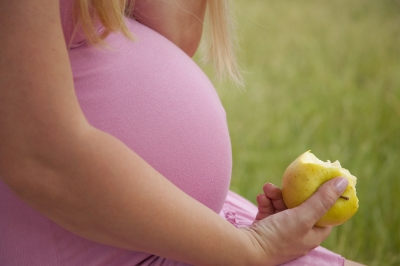By Nutritionist Megan Crockart
It seems for most pregnant ladies the first and third trimesters are the most testing with many changes happening to their body while the baby goes through these stages of growth. I am almost through the third trimester (yes, getting very close and exciting now) and would have to say I must be a rarity as I feel the second trimester is where I experienced the most discomfort from pregnancy complaints.
But as I am not the “norm” and most women do find the last trimester a little difficult I thought I would focus on some common complaints and nutritional ways to help ease these complaints.
Varicose veins/Haemorrhoids/Spider veins
These three things are very closely related and not every pregnant woman experiences them all at once (or at all), but if you do suffer from any of these then a few things that can help any one of them include:
- Silica can help with strengthening connective tissue/repairing vessels (these three symptoms are a weakening of the connective tissue due to the pressure in the body);
- Vitamin C – also important for connective tissue repair/maintenance
- Vitamin E – helpful in proper blood clotting
- Witch Hazel – this can be applied directly to the skin on haemorrhoids or varicose/spider veins to help reduce the size (not to be taken internally). Try to find an alcohol free version.
Constipation
This of course can lead to haemorrhoids or make them worse and with the abdominal cavity being taken up for another little person, this can be very common in the third trimester when there is less room for everything else. Make sure plenty of fibre is consumed throughout the whole pregnancy. Such as chia seeds, flaxseeds/linseeds, bananas, legumes, spinach, sweet potato, sunflower seeds, apples, berries, oats, broccoli, Brussels sprouts and carrots. Psyllium can be used for extra fibre and is safe during pregnancy, but make sure you drink extra water when taking psyllium. At least 2-3L a day of water will keep things moving and you and your baby hydrated.
Backache/Leg Cramps
These two things don’t always go together but both can be helped with the same things. Important minerals when it comes to both of these are magnesium, calcium and potassium, so make sure you are taking in enough minerals. Food sources include:
Almonds, bananas, cashews, cocoa/cacao, grapefruit, figs, molasses, oranges, parsnips, leafy green vegetables, salmon, sardines, soy beans, eggs, seeds such as pumpkin seeds/sunflower seeds.
Have a look at this magnesium rich salad recipe for inspiration (but leave the sunflower sprouts off).
A good quality supplement that includes adequate amounts of each mineral might be worth looking at if these foods alone are not helping.
Difficulty sleeping
This could be due to being more uncomfortable as the pregnancy progresses or can be linked to extra trips to the toilet during the night.
Increasing magnesium and vitamin B rich foods can help here to make you a bit more comfortable. See foods examples above which contain magnesium. Foods rich in B vitamins include (but are not limited to):
Asparagus , avocados, beans, beef, brewer’s/nutritional yeast, celery, chicken, fish, green vegetables, lamb, legumes, meat including organ meats, milk and dairy products, mushrooms, nuts, pears and spirulina.
Once again you can look at a good quality supplement that contains both magnesium and B vitamins that can be helpful.
Anemia
Low iron is very common in pregnancy for the mother as the baby tends to utilise most of it. This is one mineral that does seem to get monitored the most while pregnant and there is usually a few blood tests checking iron levels throughout. If you haven’t be tested, it is worthwhile having iron checked throughout. The second trimester is when anemia is most likely to develop which can cause extra fatigue (sometimes bit hard to tell what is pregnancy fatigue and lack of iron), rapid heartbeat, paleness of skin and gums. Anemia can also be linked to strange cravings for substances other than foods such as coal, dirt, ice, starch or hair. This is called “pica”. Definitely have your iron levels checked if you are experiencing any strange non-food cravings. Increasing iron rich foods is helpful (eg Almonds, apricots, avocado, dates, goji berries, mulberries, parsley, pine nuts, soybeans, sunflower seeds, pumpkin seeds, green leafy vegetables, poultry, raisins and red meat). Depending on how low your iron levels are, you may be recommended to take a iron supplement. Not all iron supplements are well absorbed and some can cause constipation (what you really don’t need), so check for the best absorbed forms of iron.
Reflux/Heartburn
These symptoms can be due to so much upwards pressure on the stomach by the uterus and hormones can tend to soften the sphincter muscles. Also stomach acid can be reduced as well. It’s not always just a sign of too much stomach acid. There is the old wives tale that reflux/heartburn is caused by the baby having a lot of hair on their head….Try to avoid foods that can promote heartburn. The most common ones are spicy, greasy foods and coffee. Eating fresh paw paw/papaya can help as it contains an enzyme which can be effective in reducing heartburn. Drinking a glass of soy milk or rice milk can be beneficial. Apple cider vinegar can also help, adding a tablespoon a day to small amount of water can reduce the symptoms. Another effective way to treat heartburn is taking the herb slippery elm. This is best used in powder form and mixed with water. This is also a really good form of fibre, which is safe during pregnancy.
Contact Megan who is a qualified nutritionist specialising in pre-pregnancy planning, pregnancy advice, if you have any questions about the various stages of pregnancy on megan@balancingnutrition.com.au.
If you missed any of her previous articles on the topic of pregnancy here are the links:
https://www.vivehealth.com.au/blog/2015/12/29/gestational-diabetes-diet-and-lifestyle-tips/
https://www.vivehealth.com.au/blog/2015/11/27/morning-sickness-diet-and-lifestyle-tips/
https://www.vivehealth.com.au/blog/2015/11/02/pre-pregnancy-diet-and-lifestyle-tips/

